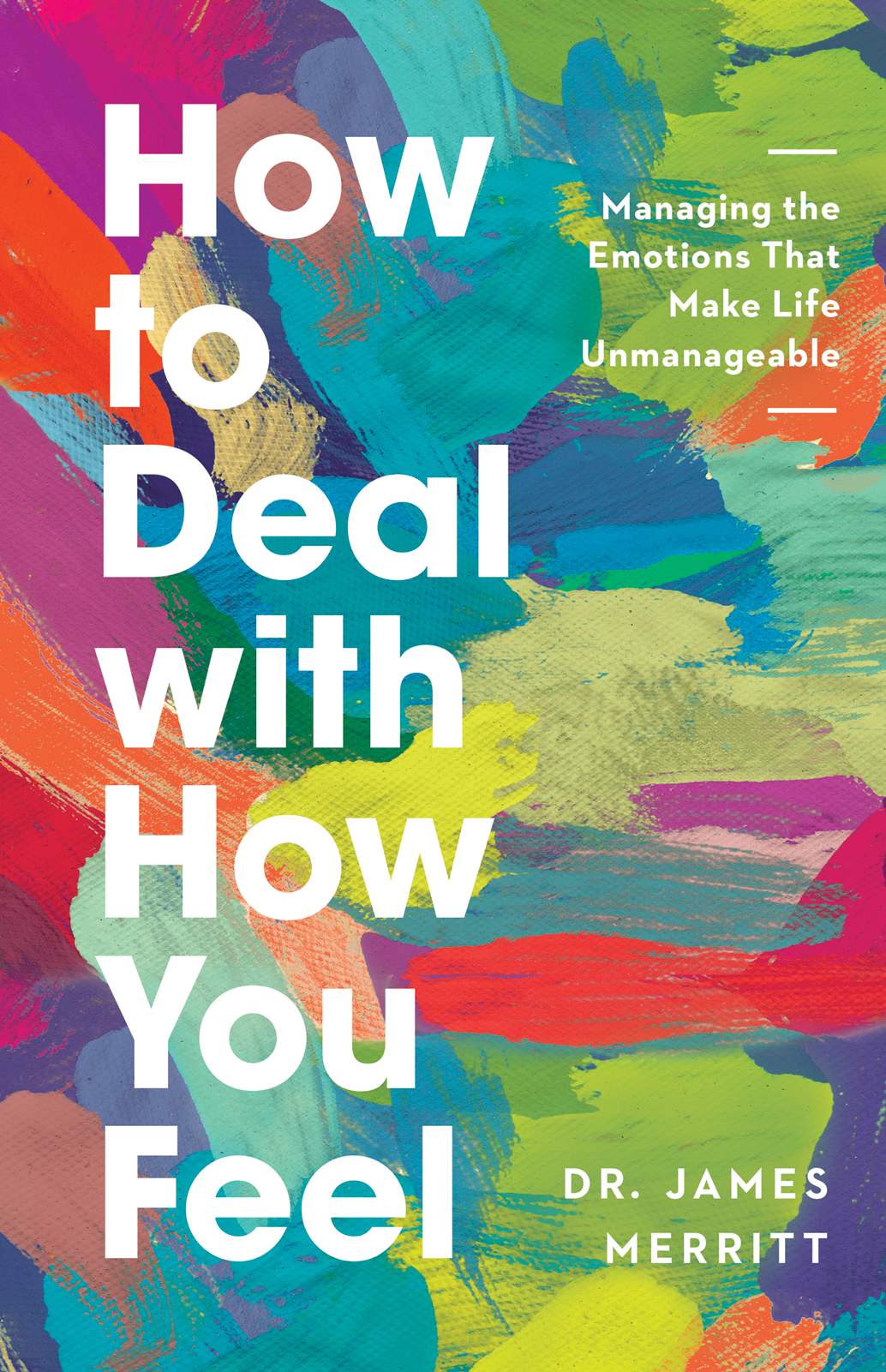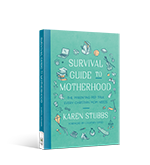
Sign Up for Updates
Connect
TOPICS
- Latest Blog
- Fiction
- Inspirational/Devotional
- Men's Christian Living
- Prophecy
- Women's Christian Living
- View All
ARCHIVES
What Does God Say About Dealing with Emotions?
Posted on Jul 19, 2022 Topic : Inspirational/Devotional, Men's Christian Living, Women's Christian Living
Posted by : Dr. James Merritt

Emotion Commotion
Whatever their cause, when it comes to feelings —stress, worry, anxiety, depression, fear, loneliness, jealousy, anger, bitterness, and guilt…what we might call “life takers”—many people tend to gravitate toward one of two extremes. In an article adapted from his book Untangled Emotions, Alasdair Groves writes about “emotional obsession” and how some people adopt an “emotions are nothing” stance.I express this idea by saying people tend to either ignore their emotions or idolize them. Both paths are extreme and problematic.
Ignoring Feelings
Some people strive to, as Groves says, “keep a stiff upper lip,” a saying derived from the physiological fact that a trembling of the upper lip is often the first visible sign of emotion. So, the thinking goes, one should stiffen their upper lip to hide emotion. These people resist feeling what they consider to be “unfeel-able” feelings churning inside of them. When an acquaintance, coworker, or neighbor asks, “How have you been?” many people reflexively respond with “Fine” or some benign equivalent. But if they told the truth, they’d say, “I’m mad as a hornet” or “I’m down in the dumps” or “I’m worried to death.”
Maybe we’re afraid of admitting our vulnerabilities, but here’s the truth: These emotions are not bad; they’re not a sign of weakness or unhealth. Emotions are good, and some of them are even godly. God created us with a mind to think, yes, but also with a heart to feel. As the late British pastor and author John Stott wrote, “We are to be neither such emotional Christians that we never think, nor such intellectual Christians that we never feel. No, God made us human beings, and human beings are by creation both rational and emotional.”
Whenever I had a meltdown as a child, my dad told me, “Big boys don’t cry.” Since every little boy wants to be a “big boy,” I’d muster enough resolve to turn off the waterworks and dry my eyes. Years later, I repeated this phrase to my eldest son when he fell and skinned his knee. It must’ve made an impression on him, because when he grew up, he went to law school and now jokes, “Big boys don’t cry; they sue.”
The truth is both boys and girls should cry sometimes, whether they’re big or small. While great poker players may be good at hiding their emotions, life is not a card game. We, humans, are creatures with feelings, and at the right time and in the right place, and in the right way it’s appropriate and healthy to express even the most challenging emotions. If we reflexively avoid or ignore those feelings, we do so at our peril.
Christians like me know that even Jesus Christ was an emotional person. And according to the record of his life in the New Testament Gospels, he regularly displayed an array of emotions. Jesus exhibited burning anger toward religious hypocrites and moneychangers who were extorting the poor in the temple courts. He experienced such stress in the garden of Gethsemane that he literally sweat drops of blood. And on the cross, abandoned by nearly all his followers, Jesus felt overwhelming loneliness when even his heavenly Father turned his back on him. You may be familiar with his cross-bound cry: “My God, my God, why have you forsaken me?” (Matthew 27:46).
So, if you’re an emotional person, congratulations. You’re in good company.
Idolizing Feelings
Idolizing feelings is the other extreme. Many people today are hyper-focused on their emotions. They believe that expressing them— anywhere and at any time and in any way—is good. Groves says some people think they “need to express yourself at any cost,” and that’s why they “value ‘getting it off your chest,’ ‘letting off steam,’ ‘just being honest,’ and so on.”6 They call this “authenticity,” but sometimes it’s just poor judgment.
If you don’t believe me, check your social media feeds, which no doubt too often include a torrent of uncontrolled emotional posts that keep the water in the pot of human feelings relentlessly boiling. Seven in ten Americans use social media, and so many of them seem ready and willing to share their unfiltered feelings. This tendency is just as unhealthy as the impulse to stuff all your emotions inside and pretend they don’t exist.
Learn to Control Your Emotions
Rather than ignore feelings or idolize your emotions, it’s crucial that you learn to control them. If you don’t control them, they’ll control you. Uncontrolled emotions can ruin your marriage and harm your
children. They can destroy your friendships and ruin your job prospects. They can even erode your health.
- Certain emotions release hormones into the physical body that, in turn, can trigger the development of a host of diseases…
- Researchers have directly and scientifically linked emotions to hypertension, cardiovascular disease, and diseases related to the immune system…
- Research has linked emotions such as depression to an increased risk of developing cancer and heart disease. Emotions such as anxiety and fear have shown a direct tie to heart palpitations, mitral valve prolapse, irritable bowel syndrome, and tension headaches.”
The stakes for this conversation about emotions, then, could not be higher.
Learn What God Says About Your Emotions
I love my Christian counselor, but I’m more concerned about what God’s Word teaches about my emotions than I am about what any therapist thinks about them. That’s why I recently turned to the Bible to explore what it says about emotions, and I learned that the God who created us to feel has a lot to say about the matter.
Feelings are subjective, and so, just like shifting sand, they can change without warning. But when you build your life on the solid rock of God’s truth, you can rule your emotions rather than allowing them to rule you. We must not ignore them or idolize them; we must learn to manage them. And we do that by heeding what God says about them. The ancient wisdom found in Scripture lays out how to control our feelings, so they don’t consume us.
God’s blueprint for how to deal with your emotions includes good news about the “life-givers” of faith, joy, gratitude, contentment, and hope.

Read more in How to Deal with How You Feel by Dr. James Merritt

